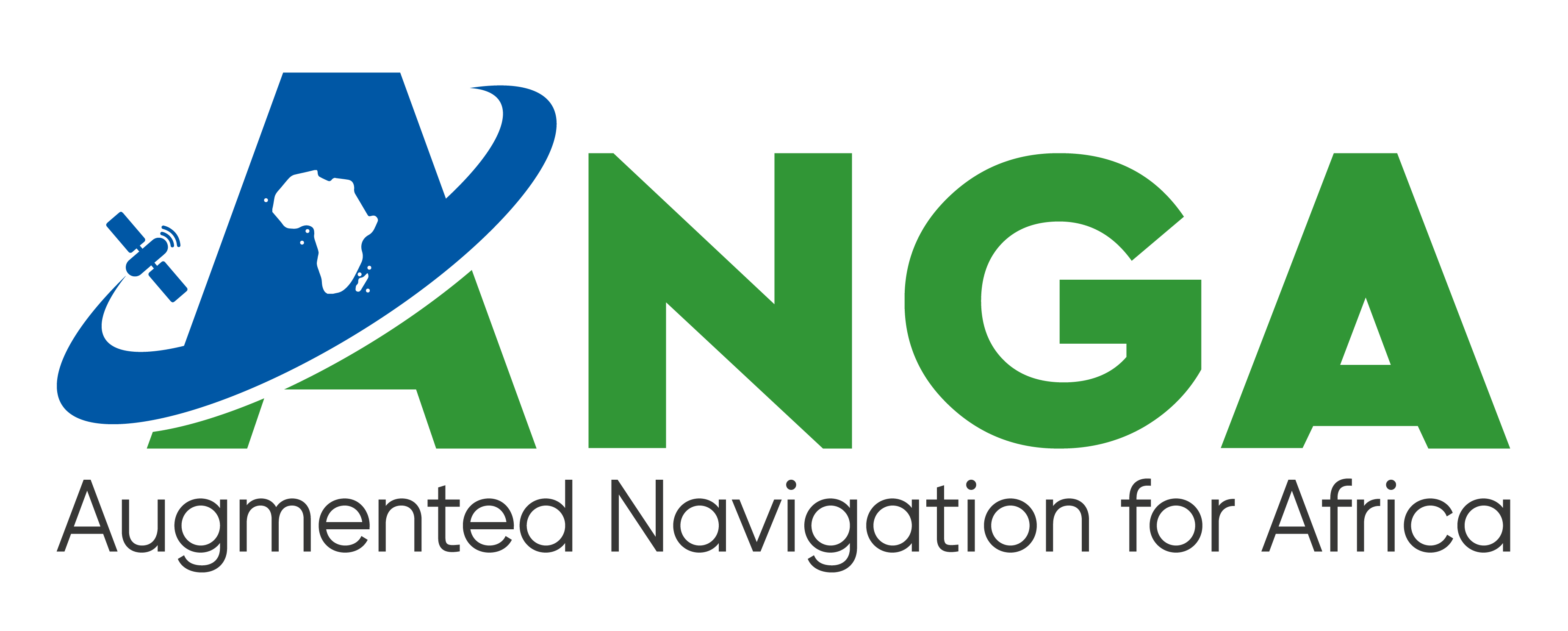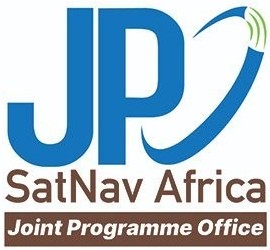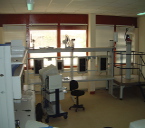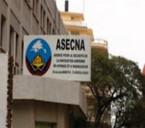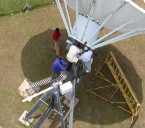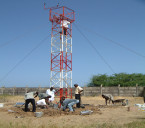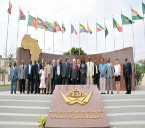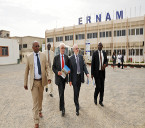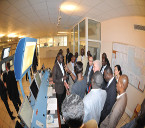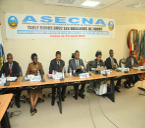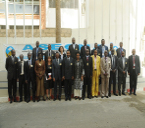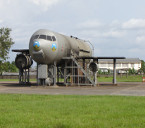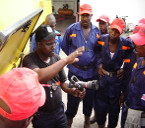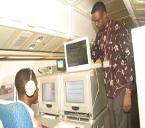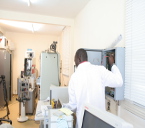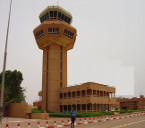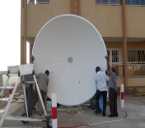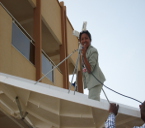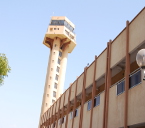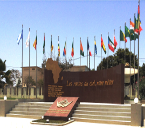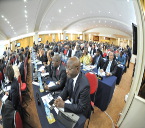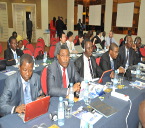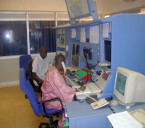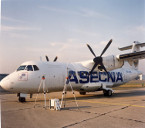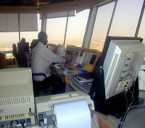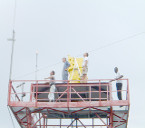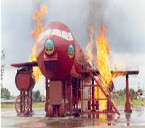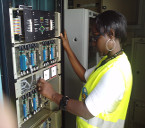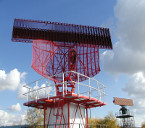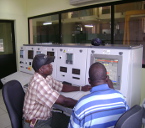Antananarivo FIR holds a coordination meeting
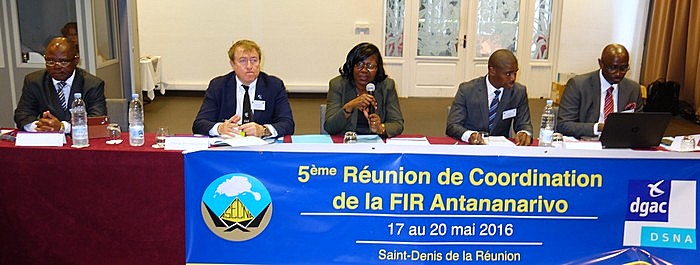
Antananarivo FIR holds a coordination meeting
The 5th Coordination Meeting of the Antananarivo Flight Information Region was held from 17 to 20 May 2018 in Saint-Denis on the Ile de la Réunion. The event was organized in partnership with the French Civil Aviation Authority - Direction Générale de l’Aviation Civile française, via its Air Navigation Services Department (DSNA).
The meeting mainly focused on the improvement of the air navigation safety in the Indian Ocean.
The meeting, which was organized two years after the last one that took place in Moroni in 2014, gathered experts from the different Antananarivo FIR operational centres (Ivato, Toamasina, Mahajanga for Madagascar, Moroni for the Comoros and Saint Denis for La Réunion). Besides it also convened operational experts from the neighbouring centres (South Africa, Seychelles, and Mozambique) as well as specialists from Météo France and the French Army from the South Zone of the Indian Ocean.
The objective of the meeting was to ensure a better coordination among the different air traffic control centres, in accordance with the ICAO recommendations and provisions on the creation of discussions and concertation fora for a safe and efficient air traffic management.
The other purpose for convening such FIR coordination meetings is to define on a consensual basis actions for improving the quality of services provided to air transport users so as to ensure better flights safety through an adequate assessment of the management of interfaces among the different air control centres.
Various issues related to air navigation safety in the Indian Ocean were addressed, namely the air traffic management, aeronautical telecommunications, navigation, surveillance, meteorological assistance to air navigation, aeronautical information management, search and rescue.
By way of opening the meeting, the Director of the Technical Operation explained the challenges of the event: «The FIR meeting is of paramount importance, in that, it translates our common willingness to continuously assess the quality of air navigation services. It provides an ideal platform to share, through the working notes and related information, problems encountered by the operational centres responsible for the provision of air navigation services within the concerned FIR, and the adjacent FIRs as well. It is also a forum that allows for defining, in a coordinated manner, actions for improving the quality of services provided to air traffic users in order to enhance better flights safety»
Speaking later Mrs. Claire Josette OBAME-EDOU concluded that: «The only choice offered to us in seeking to improve the safety of air navigation is to work together and this justifies the organization of coordination meetings. In fact this meeting should be perceived as a giving and receiving forum for different actors belonging to managerial and operational bodies, where varied pieces of experience are valued and shared so as to beef up our respective capacities to efficiently carry out our mission».
Main recommendations
After having followed the submission on the implementation situation of the 4th Tana FIR Meeting conclusions, the gathering adopted the following recommendations:
Air traffic management
There were discussions on this point, whose summaries are as follows:
The IO DSNA (French Air Navigation Services Department) presented their method of handling safety events;
- The observance of the right culture in processing safety events;
- The inventory of safety events from 2014 to 2015 in ASECNA centres and specifically in the Antananarivo FIR;
- The reorganization of the Mozambique air space and the implementation of communication equipment and surveillance apparatuses;
- Review and signing of letters of understanding for centres that effected some changes in their letters of agreement;
- The National Safety Programme and the definition of safety–related objectives.
Communication, Navigation and Surveillance (CNS)
Pertaining to this point, the following points and recommendations were raised and were adopted respectively:
The appointment of focal points to ensure coordination among neighbouring centres relative to the maintenance of the communications equipment;
- The revision of the network maintenance procedure ;
- The need to exchange surveillance data for the purpose of expanding the surveillance coverage in air spaces;
- The improvement of the provision of the air traffic services by using the ADS-B equipment for the Indian Ocean;
- The problem of the missing flights plans that constitutes a setback to the use of automatic ATM ;
- The issue of the management of the frequency spectrum as provided for by the WRC15 resolution, especially the adoption of resolution 154 (Rev. WRC -15) regarding the regulatory measures for the 3400-4200 MHz band protection;
- The persistent lack of communication installations between Anjouan and Mohéli islands.
Meteorological Assistance to air navigation
Discussions on different aspects as regards this point focused on:
coordination between Meteorological services and air navigation services by observing relevant ICAO documents, namely amendment 78 to the ICAO Annex 3 ;
- enhancement of windshear detection at Moroni
- coordination between MET services and the Cyclones Specialized Regional Meteorological Centre (CMRS) of La Reunion-Indian Ocean;
- the need for a sound organization in the provision of meteorological services making it possible for any MET unit to know about the corresponding ATS bodies;
- the need to supply the domestic aerodromes of Madagascar with meteorological equipment;
- the processing of main risk factors of meteorological origin within the Antananarivo FIR.
Local assistance to the management of aeronautical information
In this respect, discussions revolved around the following:
- the state of the implementation of the Aeronautical Information Management Tool (AIMANT);
- the need to ensure a good coordination between the States that solicit the publication of spaces with special status and the international Notam office (BNI) in ensuring the reliability and integrity of aeronautical data.
The meeting insisted on the progressive bigger role being played by AIM in safety management facilities in the area of the data sensitiveness in the safety chain.
Data sources were also examined by participants. It was once again recalled the obligation for AIM entities to ascertain the reliability and integrity of sources of information before releasing any aeronautical information.
SAR
On the SAR issue, the following were the concerns:
- the need to develop national SAR plans and communicate them ;
- the need to develop SAR cooperation agreements among neighbouring States in the Indian Ocean.
At the closure of the meeting, the Air Navigation Service –Indian Ocean (SNA-OI) was designated as the focal point to monitor the implementation of recommendations up until the next FIR meeting, in coordination with focal points identified by the different centres.



